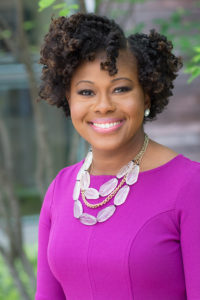 Almost 40 years ago – a decade before I was even born – my first family members to arrive in the United States from Jamaica were undocumented in this country. It took an act of Congress to change the trajectory for my family, provide legal status, and enable me to migrate to the United States as a Jamaican-born immigrant at the age of 5. My family’s immigrant experience, being raised with humble means by a single mother with relentless fortitude, and a focus on taking advantage of every opportunity, shapes my agenda and passion for policy change that makes a difference in people lives.
Almost 40 years ago – a decade before I was even born – my first family members to arrive in the United States from Jamaica were undocumented in this country. It took an act of Congress to change the trajectory for my family, provide legal status, and enable me to migrate to the United States as a Jamaican-born immigrant at the age of 5. My family’s immigrant experience, being raised with humble means by a single mother with relentless fortitude, and a focus on taking advantage of every opportunity, shapes my agenda and passion for policy change that makes a difference in people lives.
I have the privilege of being elected to the Maryland General Assembly, and I am proud to be the first Black woman to represent Maryland’s 20th Legislative District. Prior to the last election, my county had never elected any Black women to the General Assembly! Now, as more women of diverse backgrounds have entered the General Assembly, we are changing the face of public service and representing a community that has never been reflected in state office.
This year, I am working with colleagues to champion maternal health and reduce the number of women who die as a result of childbirth in our state. Maryland has studied the issue of maternal death since at least 2002, and we know that many of these deaths are preventable. This year, I introduced a bill that provides local jurisdictions with the data and tools to study the maternal deaths happening in their communities and identify their own local, targeted solutions to reduce them.
In addition, prison conditions such as inmate pay and correctional education are two legislative issues I’m talking on. Obtaining a skill or completing an education program are important factors in successful re-entry and the ability to obtain a job after incarceration. I want to ensure that our state reduces recidivism and ensures successful re-entry by strengthening the opportunities we provide for our inmates during their term of confinement.
I’m a member of the Ways and Means Committee, and we take the lead in the House on elementary and secondary education issues. I am working with teachers, school counselors and leaders to advocate for trauma-informed practices in schools. Many students enter the school walls after encountering various external factors such as family separation, abuse, homelessness, family drug abuse and many other challenges that affect their ability to learn. There’s a growing body of research to address trauma and ensure that schools are prepared to recognize and respond to students who are affected by traumatic stress.
States like Massachusetts and Washington are leading the nation in taking a districtwide approach to trauma-informed education, and it’s time for more systems to follow their lead. I introduced legislation that would expand the use of trauma-informed approaches in Maryland schools. Through training and changes in practice and policy, trauma-informed schools recognize trauma and integrate supportive policies and procedures into all aspects of education delivery.
On the day I presented this trauma legislation, I also presented legislation that will prevent discrimination in non-public schools. As I looked around at the House Ways and Means Committee, I saw one of my sisters from the 2017 Emerge class seated on the dais as a fellow member of the committee. We are two out of the eleven Emerge Maryland women who were elected in the 2018 election.
During this hearing, I turned around and caught a warm smile from another Emerge sister–a recently-elected county councilmember from our Emerge class waiting to testify on behalf of her community for another piece of legislation. Women all over our state and the country are stepping up to run and become important voices for issues that matter to the communities they represent. I am proud to be counted among these women and have the ability to use my seat to speak up, speak out and help influence the agenda.